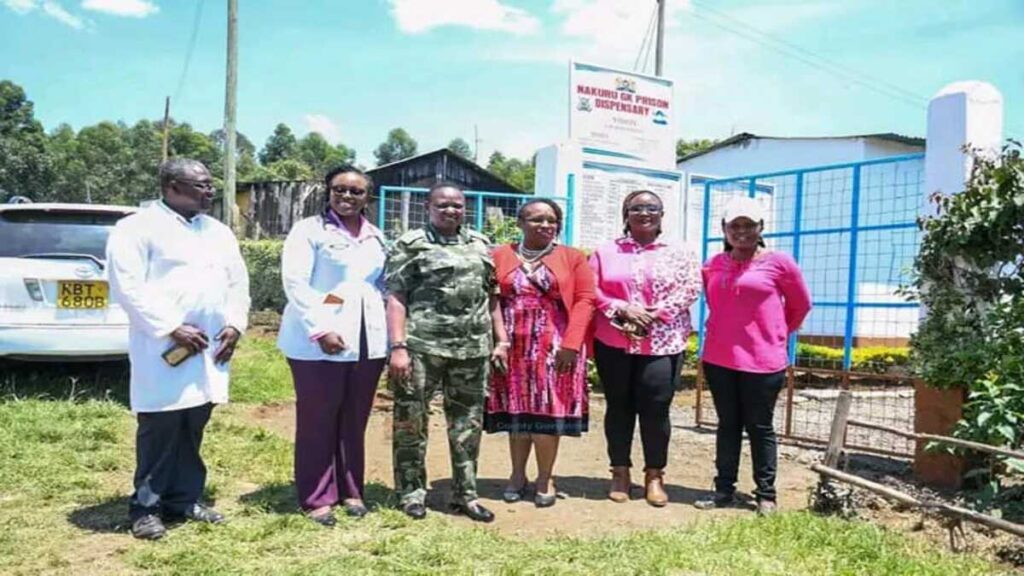
Oncologists from Nakuru County Referral and Teaching Hospital (NCRTH) conducted a groundbreaking medical outreach at the Nakuru Women’s Prison, screening and treating over 100 inmates during October’s Breast Cancer Awareness Month.
The collaborative initiative, spearheaded by the Kenya Medical Association’s Nakuru Chapter, was designed to provide critical healthcare services to a traditionally underserved population. More than 100 women were screened for various health conditions, with a primary focus on cancer detection and treatment.
“We have traditionally conducted awareness walks alongside screenings, but this year we chose to bring these services directly to the prison,” said Dr. Siwillis Mithe, a clinical oncologist at NCRTH. The medical team recognised that incarcerated women face significant barriers to accessing routine healthcare services.
Dr. Dulcie Wanda from the Kenya Medical Association emphasised the broader implications of the initiative. “Our joint effort is about equity, ensuring that everyone, regardless of their circumstances, has access to quality cancer screening and medical care,” she stated.
The County Director for Health Administration and Planning, Dr. Joy Mugambi, highlighted the systemic approach to healthcare inclusivity. “We’ve registered inmates and all the prison staff under Social Health Insurance, making access to medical services seamless and sustainable,” she affirmed.
Community-Based Organizations played a crucial role in the success of the outreach. Women In Society Empowerment (WISE), led by Sophie Hiuhu, mobilised additional partners including Lions Club Nakuru and Valley Hospital, transforming the initiative into a comprehensive community effort.
Preliminary data suggests that approximately 12 percent of female prisoners have never received comprehensive medical screening prior to this initiative. The outreach represents a significant step towards addressing healthcare disparities within correctional facilities.
The medical team employed a multi-disciplinary approach, offering not only cancer screenings but also general health assessments, counselling services, and referrals for further treatment where necessary. Specialised medical equipment was transported to the prison, ensuring that inmates received the same standard of care available in established medical facilities.
Healthcare professionals involved in the initiative stressed the importance of destigmatising medical care for incarcerated populations. “These women are members of our community,” Dr. Mithe noted. “They deserve comprehensive healthcare, regardless of their current circumstances.”
The event marks a pivotal moment in healthcare accessibility, demonstrating a unified commitment to health equity and compassionate care. By bringing medical services directly to the Nakuru Women’s Prison, the collaborative team has set a precedent for inclusive healthcare approaches.
As the medical community continues to break down barriers, this initiative serves as a powerful reminder that quality healthcare is a fundamental right, not a privilege.